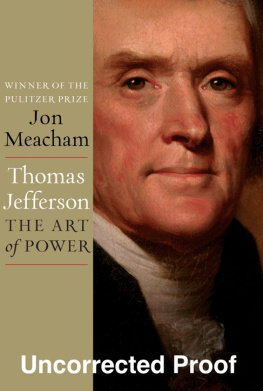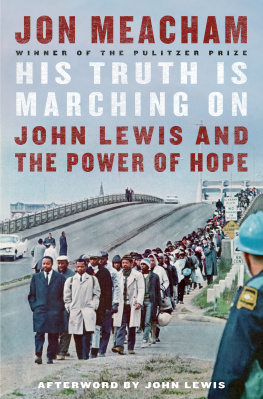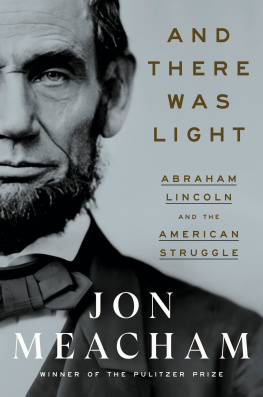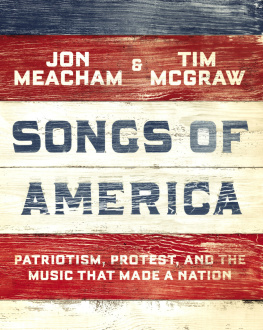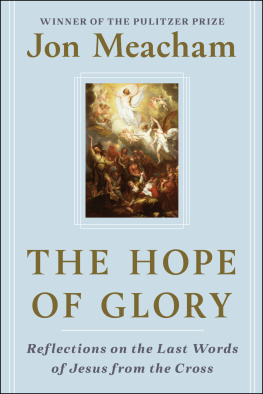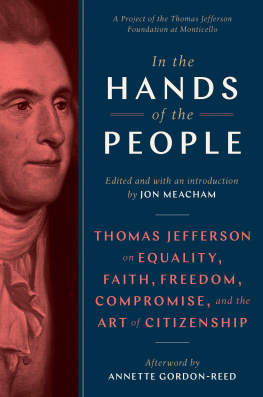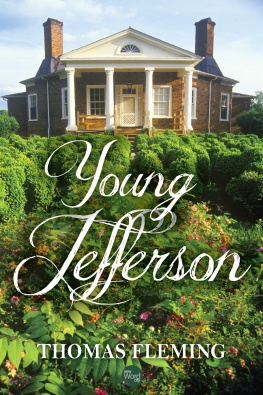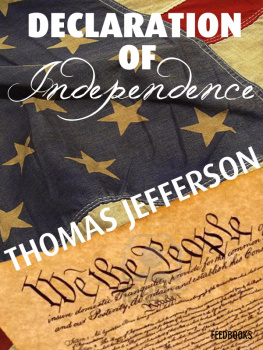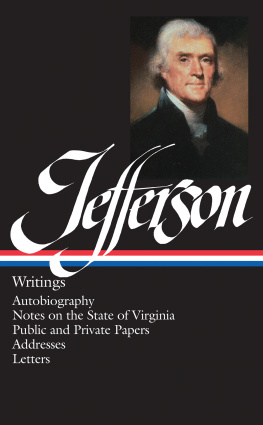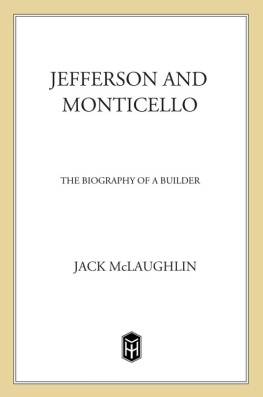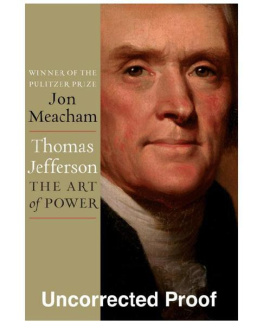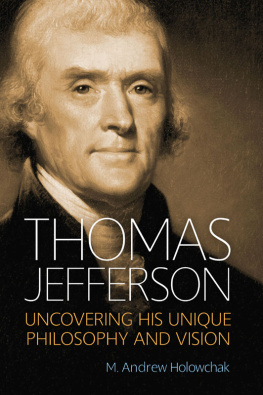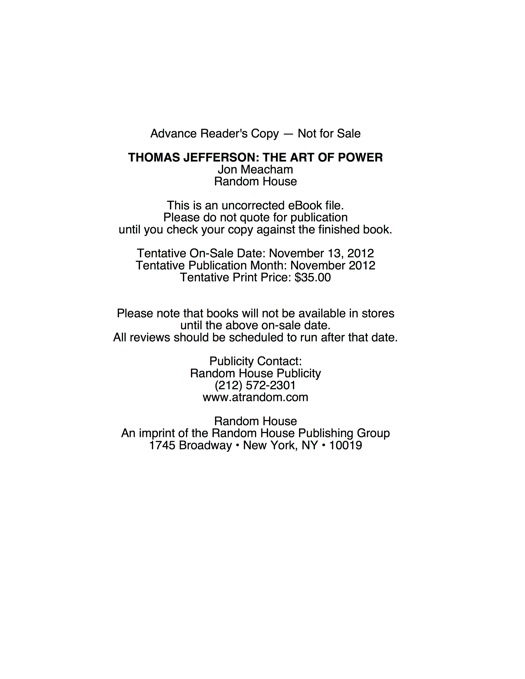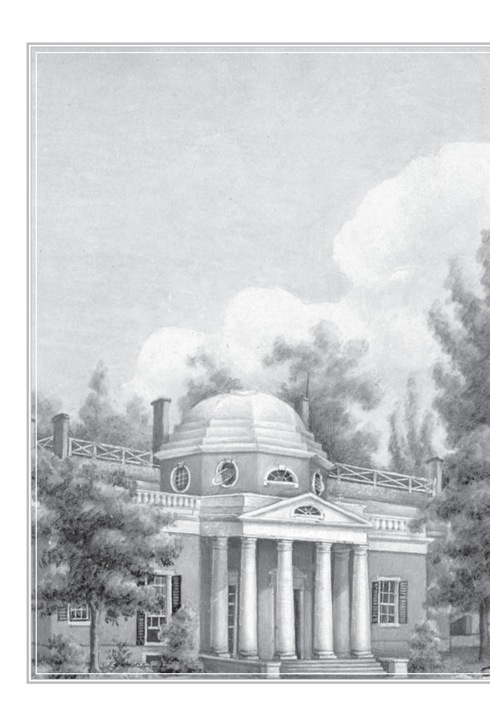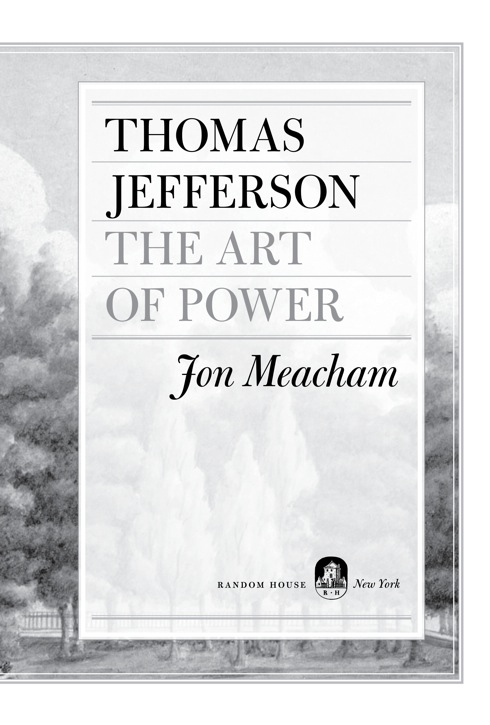Jon Meacham - Thomas Jefferson: The Art of Power
Here you can read online Jon Meacham - Thomas Jefferson: The Art of Power full text of the book (entire story) in english for free. Download pdf and epub, get meaning, cover and reviews about this ebook. year: 2012, publisher: Random House, genre: Non-fiction. Description of the work, (preface) as well as reviews are available. Best literature library LitArk.com created for fans of good reading and offers a wide selection of genres:
Romance novel
Science fiction
Adventure
Detective
Science
History
Home and family
Prose
Art
Politics
Computer
Non-fiction
Religion
Business
Children
Humor
Choose a favorite category and find really read worthwhile books. Enjoy immersion in the world of imagination, feel the emotions of the characters or learn something new for yourself, make an fascinating discovery.
- Book:Thomas Jefferson: The Art of Power
- Author:
- Publisher:Random House
- Genre:
- Year:2012
- Rating:4 / 5
- Favourites:Add to favourites
- Your mark:
Thomas Jefferson: The Art of Power: summary, description and annotation
We offer to read an annotation, description, summary or preface (depends on what the author of the book "Thomas Jefferson: The Art of Power" wrote himself). If you haven't found the necessary information about the book — write in the comments, we will try to find it.
The New York Times Book Review The Washington Post Entertainment Weekly The Seattle Times St. Louis Post-Dispatch
In this magnificent biography, the Pulitzer Prizewinning author of American Lion and Franklin and Winston brings vividly to life an extraordinary man and his remarkable times. Thomas Jefferson: The Art of Power gives us Jefferson the politician and president, a great and complex human being forever engaged in the wars of his era. Philosophers think; politicians maneuver. Jeffersons genius was that he was both and could do both, often simultaneously. Such is the art of power.
Thomas Jefferson hated confrontation, and yet his understanding of power and of human nature enabled him to move men and to marshal ideas, to learn from his mistakes, and to prevail. Passionate about many thingswomen, his family, books, science, architecture, gardens, friends, Monticello, and ParisJefferson loved America most, and he strove over and over again, despite fierce opposition, to realize his vision: the creation, survival, and success of popular government in America. Jon Meacham lets us see Jeffersons world as Jefferson himself saw it, and to appreciate how Jefferson found the means to endure and win in the face of rife partisan division, economic uncertainty, and external threat. Drawing on archives in the United States, England, and France, as well as unpublished Jefferson presidential papers, Meacham presents Jefferson as the most successful political leader of the early republic, and perhaps in all of American history.
The father of the ideal of individual liberty, of the Louisiana Purchase, of the Lewis and Clark expedition, and of the settling of the West, Jefferson recognized that the genius of humanityand the genius of the new nationlay in the possibility of progress, of discovering the undiscovered and seeking the unknown. From the writing of the Declaration of Independence to elegant dinners in Paris and in the Presidents House; from political maneuverings in the boardinghouses and legislative halls of Philadelphia and New York to the infant capital on the Potomac; from his complicated life at Monticello, his breathtaking house and plantation in Virginia, to the creation of the University of Virginia, Jefferson was central to the age. Here too is the personal Jefferson, a man of appetite, sensuality, and passion.
The Jefferson story resonates today not least because he led his nation through ferocious partisanship and cultural warfare amid economic change and external threats, and also because he embodies an eternal drama, the struggle of the leadership of a nation to achieve greatness in a difficult and confounding world.
Praise for Thomas Jefferson: The Art of Power
This is probably the best single-volume biography of Jefferson ever written.Gordon S. Wood
A big, grand, absorbing exploration of not just Jefferson and his role in history but also Jefferson the man, humanized as never before.Entertainment Weekly
[Meacham] captures who Jefferson was, not just as a statesman but as a man. . . . By the end of the book . . . the reader is likely to feel as if he is losing a dear friend. . . . [An] absorbing tale.The Christian Science Monitor
This terrific book allows us to see the political genius of Thomas Jefferson better than we have ever seen it before. In these endlessly fascinating pages, Jefferson emerges with such vitality that it seems as if he might still be alive today.Doris Kearns Goodwin
Jon Meacham: author's other books
Who wrote Thomas Jefferson: The Art of Power? Find out the surname, the name of the author of the book and a list of all author's works by series.

